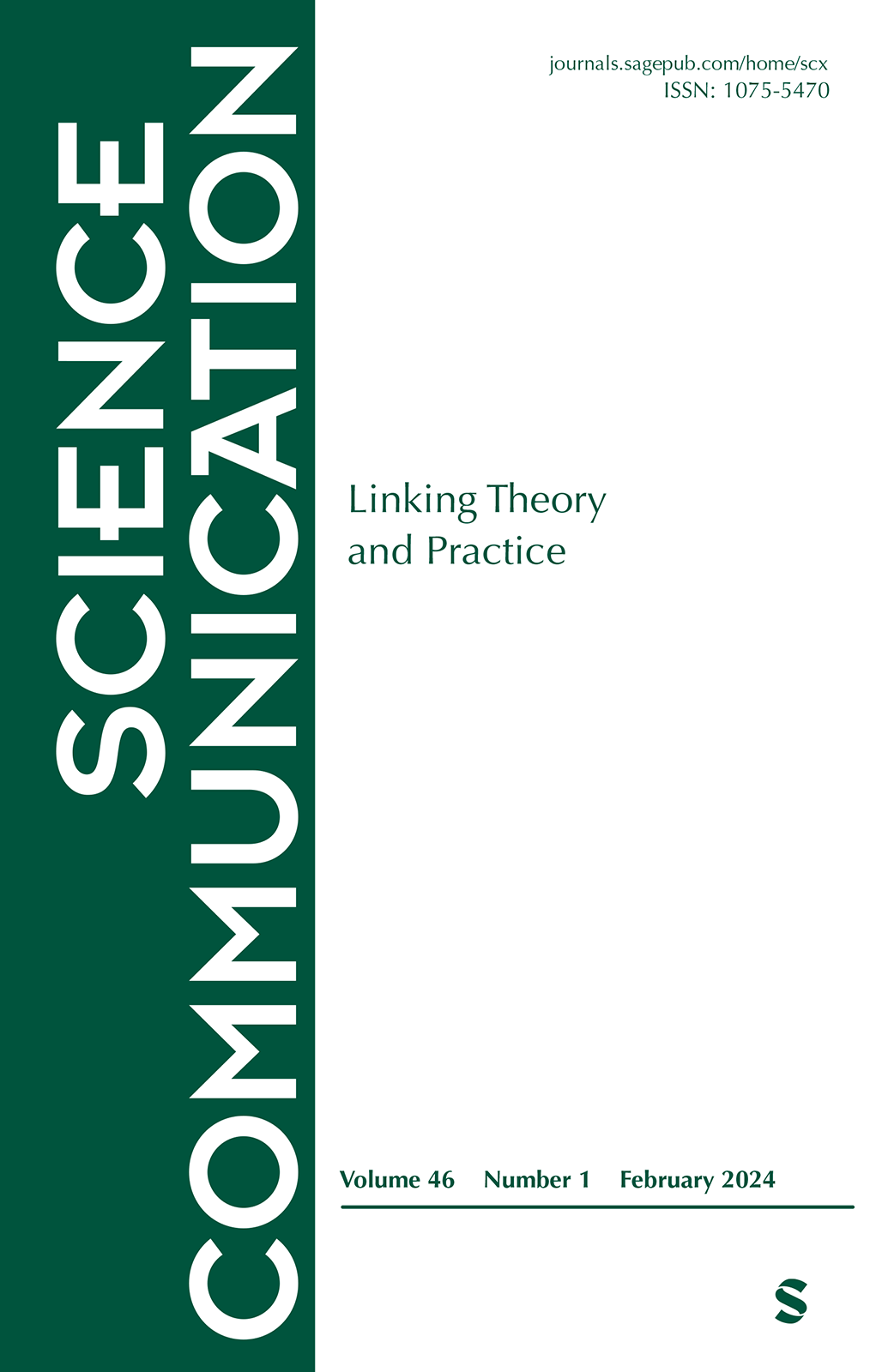生态学家在看到好处时会优先倾听社区观点:规范和自我效能信念似乎影响不大
IF 4.1
1区 文学
Q1 COMMUNICATION
引用次数: 0
摘要
本研究使用调查数据来探讨生态学家是否愿意在长期生态研究(LTER)地点的研究中优先考虑当地社区成员的观点这一行为目标。调查发现,相信这种倾听的益处在统计学上对表达优先倾听的意愿有较强的预测作用。规范性信念和代理信念都不是优先倾听的有力相关因素。女性和年轻科学家更愿意将倾听作为优先目标。这项研究以 "作为有计划行为的战略性科学传播 "方法为基础,试图更好地理解科学家的传播选择。本文章由计算机程序翻译,如有差异,请以英文原文为准。
Ecologists Prioritize Listening to Community Perspectives When They See the Benefit: Norms and Self-Efficacy Beliefs Appear to Have Little Impact
This study uses survey data to explore ecologists’ willingness to prioritize the behavioral goal of considering local community members’ perspectives in the context of research at Long Term Ecological Research (LTER) sites. It finds that believing in the benefits of such listening is a relatively strong statistical predictor of expressing a willingness to prioritize listening. Neither normative beliefs nor agency beliefs were strong correlates of prioritizing listening. Women and younger scientists were more willing to prioritize listening as a goal. The study builds on the “strategic science communication as planned behavior” approach to try to better understand scientists’ communication choices.
求助全文
通过发布文献求助,成功后即可免费获取论文全文。
去求助
来源期刊

Science Communication
COMMUNICATION-
CiteScore
13.50
自引率
4.40%
发文量
19
期刊介绍:
Science Communication is a prestigious journal that focuses on communication research. It is recognized globally for publishing top-quality manuscripts that demonstrate excellent theoretical frameworks and robust methodology. Our journal embraces a broad definition of science, encompassing not only the natural and physical sciences but also social science, technology, environment, engineering, and health. Regardless of the scientific area, effective communication is always the focal point of our investigations.
Apart from theoretical and methodological rigor, we place great emphasis on the practical implications of scientific communication. Therefore, we expect all submitted manuscripts to address the real-world applications and significance of their research, alongside theoretical considerations.
In summary, Science Communication is an internationally renowned journal dedicated to bridging the gap between science and society. By promoting effective communication in various scientific domains, we strive to engage readers with intriguing research that has tangible implications for the world around us.
 求助内容:
求助内容: 应助结果提醒方式:
应助结果提醒方式:


